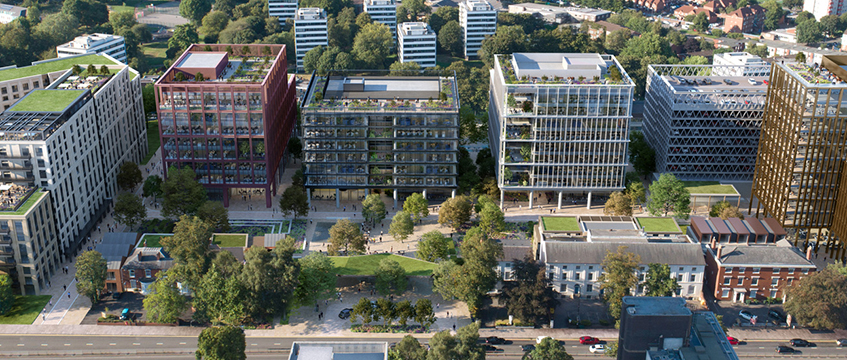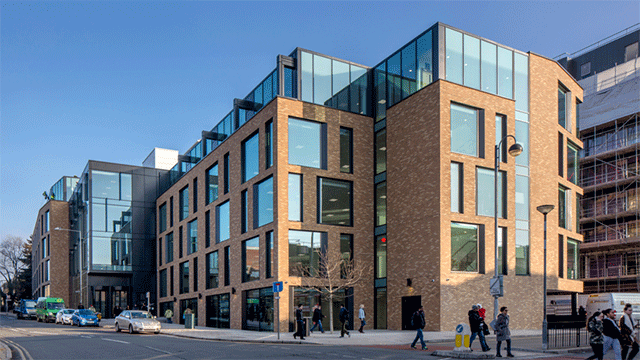Birmingham’s burgeoning build-to-rent market has made its way into the city core as developers pitch for schemes on sites once earmarked for offices.
Argent and Hermes are working up plans for 300 BTR flats in the first residential scheme on the 17-acre Paradise site. The homes will replace offices that had previously received planning approval.
“It is the first city core residential of scale,” says Argent regional director Rob Groves. “There has been a significant change in Birmingham and demand for residential over the last four years.
“What we are saying is: let’s complement the scheme with residential. It breathes life and vitality into the development and it helps us to accelerate a future phase of the development.”
The developer and joint venture partners Hermes and Birmingham City Council are eyeing a completion date of 2023, several years ahead of previous plans. Hermes will fund this, but will face investors knocking at the door to acquire the finished assets.
“The promotion of the BTR is being developed by the joint venture, and then Hermes will make its decision around taking forward the investment,” says Grove.
He adds that rising demand for housing in the city centre is driving investor appetite for rental opportunities. And that wall of money has brought fresh confidence for multiple resi developers.
Plethora of pots of money
Across the road at Arena Central, local developers Taylor Grange, Court Collaboration and SevenCapital are circling resi opportunities at the final development sites of 4 and 5 Arena Central, fronting Bridge Street.
Kier has instructed CBRE to advise on the mixed-use scheme, which agents say it not yet being marketed formally. But developers are pursuing it with visions of 300-plus homes and offers north of £10m for the unconsented land opposite HSBC’s offices, offering a quick exit for the decades-long project.
Earlier this year, Ballymore celebrated the completion of Birmingham’s largest single office development at Snowhill, after some 17 years.
“If you have one use on a site then there is only a certain amount of absorption that you can expect,” says SevenCapital managing director Phil Carlin. “Complementary rather than cannibalistic uses compresses the programme, and an IRR would be dramatically improved.”
SevenCapital was the first to start developing resi in the city centre and has launched new divisions within its business to expand this. The company recently completed The Lansdowne for Long Harbour, but despite the wall of money targeting the sector, future development will be backed by its own balance sheet.
“You have to draw the distinction between institutionally forward-funded residential property and the plethora of pots of money that can make that happen, versus fully speculative forward-funding for an office scheme, which is very difficult,” says Carlin.
Time in the sun
Last year, CBRE recorded some £326m in BTR transactions in Birmingham, compared to £607m in city office deals. But that remains a small portion of the billions in capital targeting the sector.
“There are a lot of unsatisfied requirements from big capital houses who want to be in Birmingham,” Carlin says.
Tony Haran, residential capital markets director at CBRE, says BTR investment should continue to rise: “There is huge institutional investment and that risk is spread based on micro-locations around the city core. They are looking at up to three schemes across Birmingham, that could be anywhere between 700-1,000 units per fund.”
Haran points to Hammerson’s Martineau Galleries, Calthorpe’s New Garden Square and Arena Central as examples of this growing trend, adding: “Any large mixed-use strategic site is going to have residential on it, because it is a captive audience, it is placemaking and it is having its time in the sun. It is an essential use on a mixed-use scheme above a certain acreage.”
To send feedback, e-mail emma.rosser@egi.co.uk or tweet @EmmaARosser or @estatesgazette











